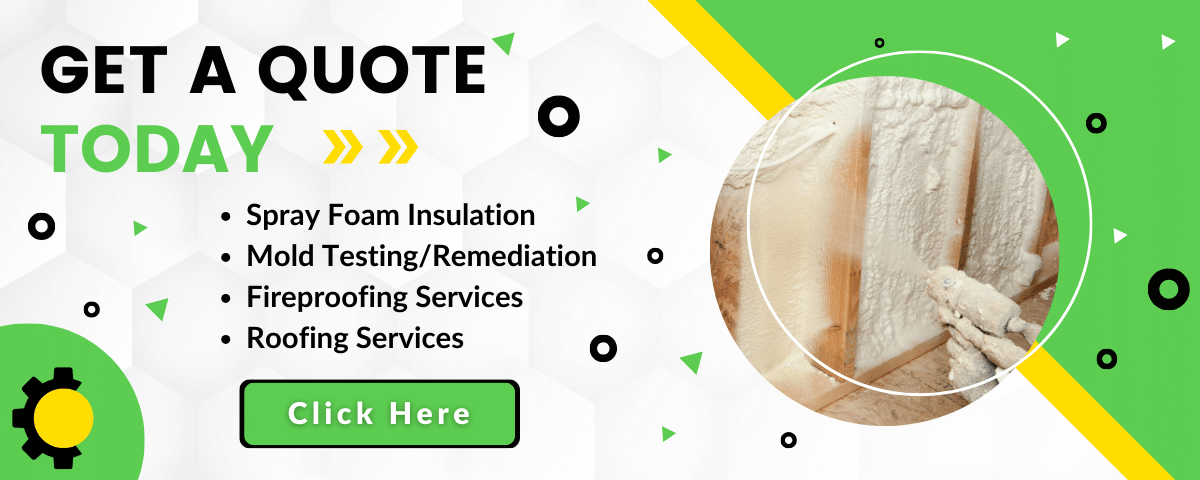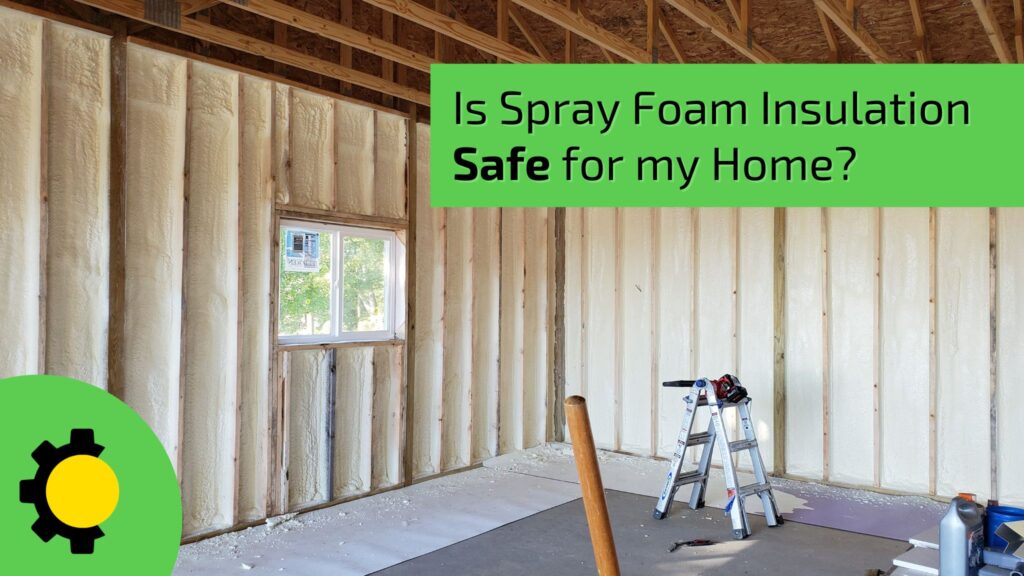You may find conflicting information about foam insulation safety when researching insulation for your house.
You may be wondering if it is safe for you to use spray-on foam insulation in your home. What about your children? What about your pets?
Yes, you can use our spray foam and injection insulation in any part of your house without having to worry about it being toxic or posing health risks. We would never put anything into your home that we wouldn’t use in our homes.
It is important to be skeptical about what you hear or read online. Spray foam insulation problems that were true 20 years ago, are not the same today.
Sunlight Contractors is a company with years of experience in insulating homes. We get many questions about foam insulation safety. In your home, as well as in our own homes, we use only the safest foam insulation products available.
We’ll look at some common safety concerns and dispel the myths regarding spray foam insulation safety.
Does Spray Foam Insulation Off-Gas?
When you talk about off-gassing, your spray foam contractor will use the term VOC or volatile organic compounds.
It’s basically all the tiny particles that are emitted when a material sprays. Off-gassing is present in hairsprays, body sprays, and other products you may bring home from dry cleaners. Let’s discuss spray foam off-gassing.
Spray Foam does off-gas. There are health and odor issues with off-gassing but only in large quantities. If you are concerned about spray foam off-gassing in your home, choose products that have a “low VOC” label.
This seal is issued by the industry and signifies that there is minimal off-gassing. Low VOC means that the re-occupancy period is reduced by around two hours.

Is Spray Foam Insulation Flammable?
Insulation is given a rating based on its ability to withstand fire.
Insulation materials that have a smoke index less than 450 or a flame spreading index less than 25 are given the Class One Fire Rating. This rating indicates that the insulation is most resistant to fire, but not completely fireproof.
If the worst happened, and a fire broke out in your house, the insulation foam would not act as a spark. The foam will self-extinguish once the flame has been removed.
Does Foam Insulation Contain Formaldehyde?
Most homeowners are afraid of formaldehyde, but they should consider the many things that contain it. According to the American Cancer Society, these include cosmetics, lotions and shampoos.
According to the U.S. Department of Health and Human Services, other items that contain trace amounts of formaldehyde include crafters glue and caulk.
Now that we’ve covered that, let’s talk about formaldehyde in spray foam.
Some spray foam insulation contains formaldehyde. However, when it is mixed in our trucks the formaldehyde becomes bonded to the material and cannot leak. The finished foam insulation installed in your wall is formaldehyde free.
Spray foam insulation safety
While cured spray polyurethane foam provides safe, affordable energy efficiency for Louisiana homeowners and business owners, the installation of spray foam insulation– both closed cell and open cell – in attics, walls, crawl spaces, and on rooftops requires precision, attention to detail, and precaution. Spray Foam Insulation Safety must be at the forefront during installation. At Sunlight Contractors, LLC, we pride ourselves on ensuring a safe, healthy environment before, during, and after an installation for our crew, our clients, and their community.
We are Louisiana’s premier SPFA-certified spray foam specialists
Our spray foam insulation contractors are trained in Spray Foam Insulation Safety and certified by the Spray Polyurethane Foam Alliance. It is a non-profit professional organization committed to appropriate safety protocol in the use of spray polyurethane foam. They are instructed in the proper use of PPE, or personal protective equipment, as well as safety guidelines that protect the people in the area where spray foam is being applied.
Spray foam as an insulation material has been used in industrial construction for over thirty years, and it’s become popular as residential insulation over the past ten years. While it has been proven to be perfectly safe once cured, during application, it can be potentially harmful if it is inhaled or comes in contact with skin.

Safety during spray foam installations is our priority
That’s why we put up cautionary signs and barriers wherever we install spray foam. This gives us the peace of mind to know that our clients and their neighbors are safely outside the spraying zone. Similarly, our crew of certified installers are required to wear breathing, body, glove, and eye protection during and immediately following the application in order to protect their health.
Ventilation of the area being sprayed is also mandatory when installing spray foam. When a workspace is properly ventilated, it can reduce airborne levels of vapors resulting from the application. This protects SPF contractors and others in the area from inhaling the particulates emitted into the air, which can cause coughing and breathing difficulties. These dusty remains will linger until the area is completely cleaned and ventilated, which is why we take great care at Sunlight Contractors, LLC to leave the homes we treat even cleaner than they were when we arrived.
Spray foam insulation is safe
Every day, strange things happen. You hear about car accidents almost every day but you still drive to work.
Spray foam insulation is a relatively new technology, and it has seen massive improvements over the last few years. Spray foam insulation is the new construction standard.
If you look at the specifications or blueprints, both commercial and residential projects require foam insulation.
You just need to make sure that the contractor you choose uses high-quality foam and has the necessary experience to install the material properly.

